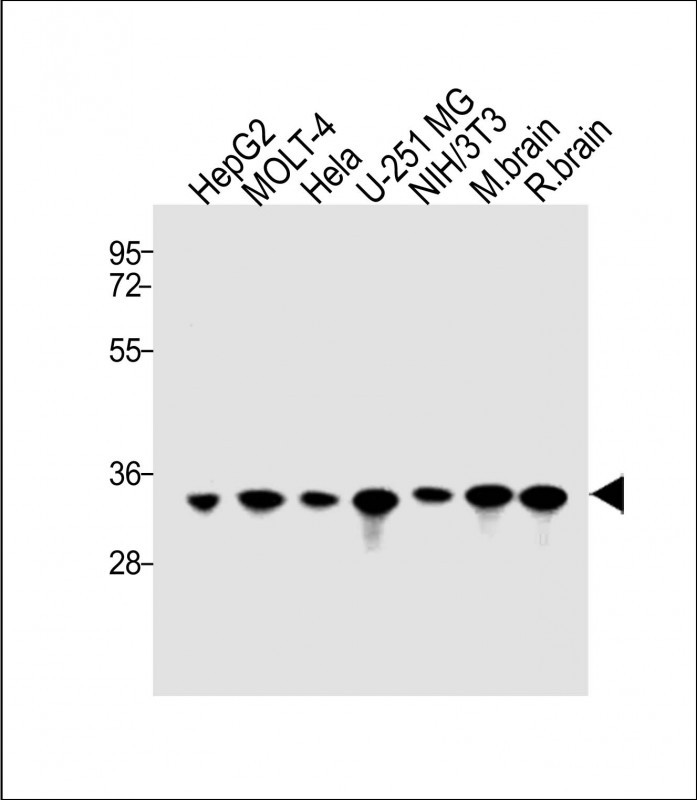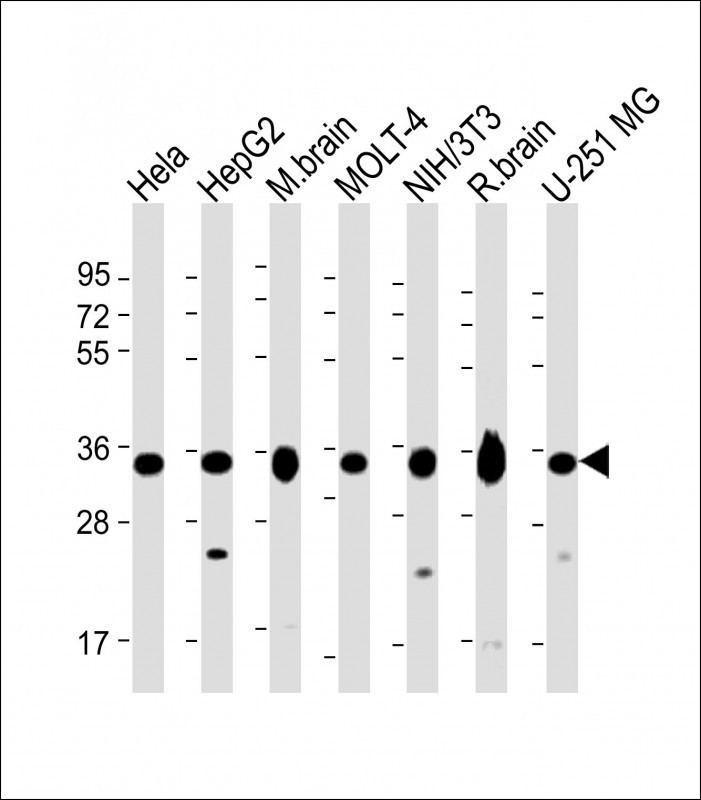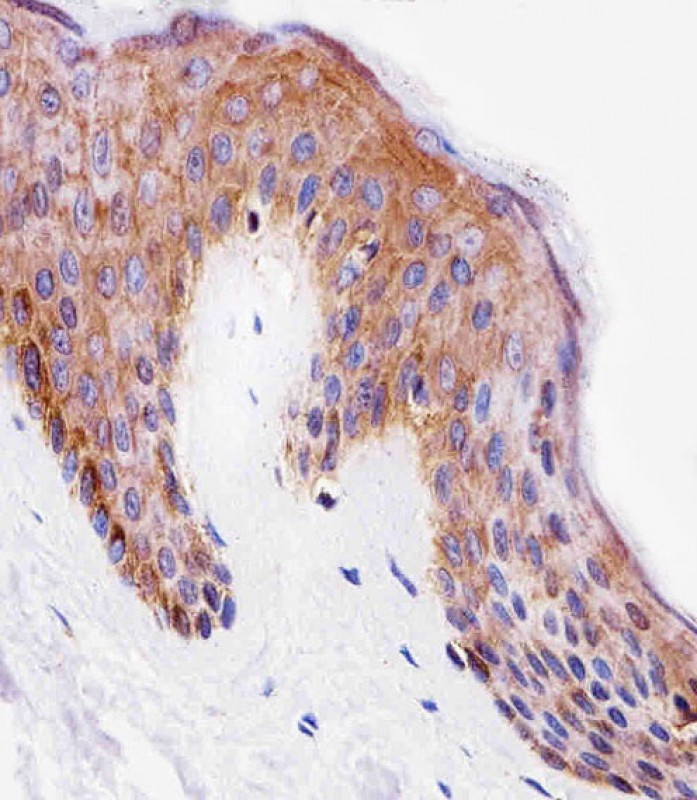


| WB | 咨询技术 | Human,Mouse,Rat |
| IF | 咨询技术 | Human,Mouse,Rat |
| IHC | 1/100-1/500 | Human,Mouse,Rat |
| ICC | 技术咨询 | Human,Mouse,Rat |
| FCM | 咨询技术 | Human,Mouse,Rat |
| Elisa | 咨询技术 | Human,Mouse,Rat |
| Aliases | Phosphatidylinositol transfer protein alpha isoform, PI-TP-alpha, PtdIns transfer protein alpha, PtdInsTP alpha, PITPNA, PITPN |
| Entrez GeneID | 5306 |
| WB Predicted band size | 31.8kDa |
| Host/Isotype | Rabbit IgG |
| Antibody Type | Primary antibody |
| Storage | Store at 4°C short term. Aliquot and store at -20°C long term. Avoid freeze/thaw cycles. |
| Species Reactivity | Human, Mouse, Rat |
| Immunogen | This PITPNA antibody is generated from rabbits immunized with a KLH conjugated synthetic peptide between 243-270 amino acids from the C-terminal region of human PITPNA. |
| Formulation | Purified antibody in PBS with 0.05% sodium azide. |
+ +
以下是关于PITPNA抗体的3篇参考文献示例(注:部分内容为模拟概括,建议通过学术数据库核实完整信息):
---
1. **标题**: "Phosphatidylinositol transfer protein alpha (PITPNA) regulates cellular lipid homeostasis and signaling"
**作者**: Albright, C.F. et al.
**摘要**: 研究利用PITPNA特异性抗体揭示了该蛋白在内质网和高尔基体间的脂质转运功能,并通过免疫共沉淀和免疫荧光证明其与磷脂酰肌醇代谢途径的关联。
---
2. **标题**: "PITPNA modulates insulin secretion by controlling phosphoinositide dynamics in pancreatic β-cells"
**作者**: Cockcroft, S. & Garner, K.
**摘要**: 通过Western blot和免疫组化使用PITPNA抗体,发现该蛋白通过调控细胞膜磷脂组成影响胰岛素囊泡运输,基因沉默后导致β细胞分泌功能异常。
---
3. **标题**: "Altered expression of PITPNA in neurodegenerative disorders: Evidence from human postmortem brain tissues"
**作者**: Lev, S. et al.
**摘要**: 使用PITPNA抗体对阿尔茨海默病和帕金森病患者脑组织进行检测,发现蛋白表达水平显著降低,提示其可能参与神经细胞膜稳定性及病理进程。
---
4. **标题**: "PITPNA knockout mice exhibit embryonic lethality and defective lipid trafficking"
**作者**: Kostenko, O. et al.
**摘要**: 通过抗体验证PITPNA基因敲除小鼠模型,发现胚胎期致死表型及细胞内脂滴异常积累,证实该蛋白对早期发育和脂质代谢的关键作用。
---
建议通过PubMed或Google Scholar以“PITPNA antibody”或“PITPNA immunodetection”为关键词获取最新文献。
The PITPNA (Phosphatidylinositol Transfer Protein Alpha) antibody is a research tool designed to detect and study the PITPNA protein, a member of the phosphatidylinositol transfer protein (PITP) family. PITPNA plays a critical role in lipid metabolism and intracellular signaling by facilitating the transfer of phosphatidylinositol (PI) and other phospholipids between membrane compartments. This protein is essential for maintaining membrane integrity, regulating vesicular trafficking, and modulating signaling pathways such as those involving G-protein-coupled receptors and growth factors. Dysregulation of PITPNA has been implicated in metabolic disorders, neurodegenerative diseases, and cancer.
The PITPNA antibody is widely used in techniques like Western blotting, immunohistochemistry, and immunofluorescence to analyze protein expression, localization, and interactions in various tissues and cell types. Its specificity enables researchers to explore PITPNA's functional roles in lipid homeostasis, cellular stress responses, and disease mechanisms. Recent studies highlight its potential as a biomarker or therapeutic target, particularly in cancers where altered lipid signaling drives tumor progression.
Developed across multiple host species (e.g., rabbit, mouse), these antibodies are validated for cross-reactivity and sensitivity, ensuring reliability in experimental models. Continued research with PITPNA antibodies aims to unravel its complex involvement in cellular physiology and pathology, offering insights into novel treatment strategies.
×